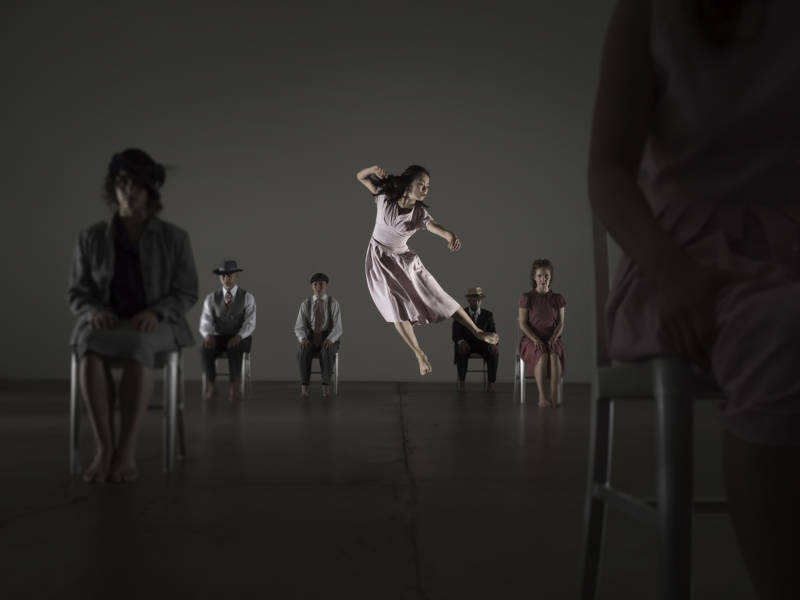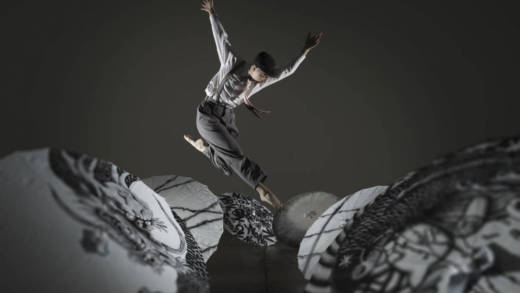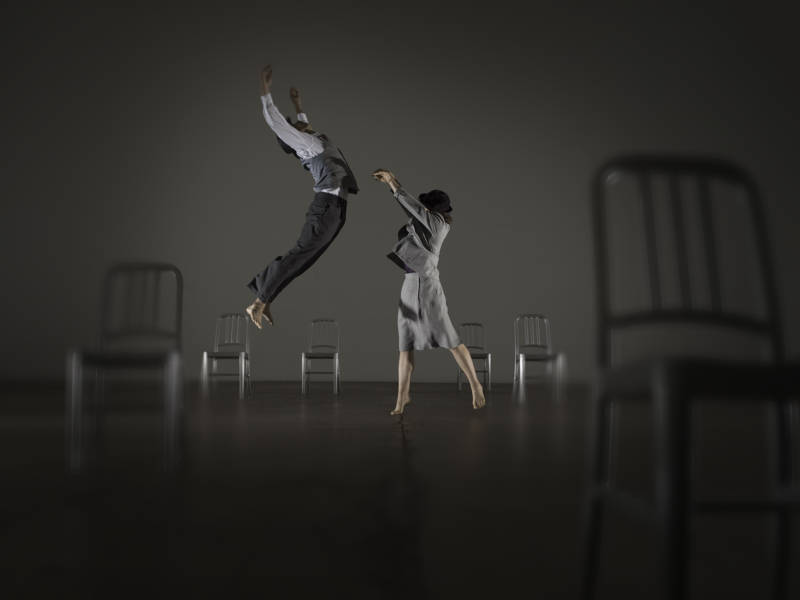It’s a week before opening night when, during a break in rehearsal, dancer-choreographer Yayoi Kambara reminisces about the 2011 ceremony at Oakland’s glamorous Paramount Theater in which she became a naturalized U.S. citizen. “I was really moved,” she recalls. “We were such a large group of people of so many languages, colors and hopes.”
The memory is ever more meaningful to her current work. When we talk, Kambara is in preparations for her new dance work titled IKKAI: Once, running Jan. 19–20 at ODC Theater, which reflects on the internment of Japanese Americans during World War II. As Kambara guides the fledgling ensemble of eight, formally known as KAMBARA + DANCERS, through intriguing formations and alternately tender and menacing interactions in a studio at the ODC Dance Commons, I note their striking individuality.
“I do like having dancers of different colors and shapes,” Kambara declares. “I think they like to work with me because we have a mutual understanding about being ‘other’ in this country. We all speak different languages — some are biracial, genderqueer, gay, coffee-colored, chocolate-colored, tan.”

The performance marks the inaugural home season for KAMBARA + DANCERS at the ODC Theater. As it turns out, the idea of ‘home’ is a fluid one for Kambara. Born in Japan, her family moved to the U.S. when she was six, and also lived for a time in England. She says that issues around citizenship have increasingly preoccupied her as she witnesses the ugly confrontations around immigration in this country, and she worries about the future that awaits her young bi-racial daughters. “Though I feel we’re safe in San Francisco,” she adds, though her expression remains quizzical, as if she isn’t entirely sure.
Her own extended family, mostly in Japan, were not caught up in the American internments. But Kambara rightly notes that many Americans, especially outside California, are unfamiliar with this infamous episode in World War II history, which capped a long surge in anti-Japanese sentiment. And she shares growing fear over the demonization of immigrant communities, of the ‘other,’ in the era of Trump.




